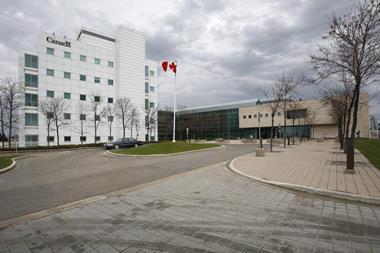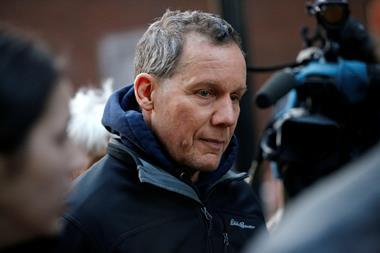The scientific community was shocked when Charles Lieber, who chaired Harvard’s chemistry department and was a faculty member for almost 30 years, was convicted of hiding his links to China in December 2021. More than three years after the nanoscience pioneer’s arrest, he has finally been sentenced and avoided jailtime. With this case closed, researchers in the US and abroad are left asking whether and how they should partner with foreign scientists and institutions.
Lieber faced up to 26 years in prison and $1.2 million (£960,000) in fines for six convictions involving concealing from federal authorities his affiliation with the Chinese government’s so-called ‘Thousand Talents’ recruitment programme and the Wuhan University of Technology, as well as failing to report income he received from that Chinese university.
He was an incredibly prolific researcher and mentor of young scientists. Even after being indicted and placed on administrative leave from Harvard, his lawyers say Lieber wrote nearly 80 recommendation letters to help young researchers apply for and secure faculty positions at prestigious institutions.
But federal prosecutors wanted Lieber behind bars, arguing that his Nobel prize ambitions led him to participate in the Chinese recruitment scheme, lie to government agents to conceal his close links with a Chinese university and cheat on his taxes.
The US government has made an example out of Lieber. As well as losing his livelihood and calling, Lieber has been subject to vicious harassment. He has even been repeatedly accused on social media of causing the Covid-19 pandemic and continues to receive countless threats – some of them antisemitic in nature – including to his life and his family.
The tremendous reverberations from this case will help ensure change. The high-profile prosecution of Lieber, and other preeminent academics over the last few years, has brought much more awareness to universities and research funders about the potential pitfalls and dangers of undisclosed international research collaborations. But questionable entanglements between researchers and foreign agencies are still occurring. A US National Science Foundation (NSF) official recently revealed a worrisome contract had come across her desk for review. It was signed between a researcher in the US, who is funded by the NSF, and an entity linked to the Chinese government, and involved the Chinese institution paying the scientist $1 million to set up a lab in China, on top of a monthly salary and additional research funding.
Involvement in such international schemes is not itself illegal, but lying to the government and failing to report foreign income to tax authorities are against the law. High-profile cases, and Lieber’s in particular, mean that there is now no excuse for researchers everywhere to be unaware of these facts.

















No comments yet